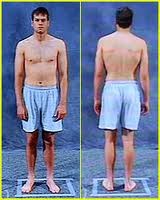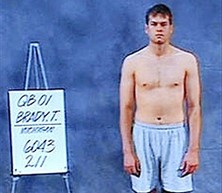
Professional athletes can seem superhuman. Unthinkable records are broken year after year, top players continue to get stronger and more talented, and if you're lucky enough to get the opportunity... you never forget when you see a pro athlete up close and in real life.
But here’s the thing, these athletes aren’t superhuman. They’re human beings just like you and me. Sure, they may have physical gifts and abilities most of us can only dream of having…but their blood pumps through their body the same way ours does, they put their Nikes on the same way we do, and perhaps most importantly; they have negative thoughts, insecurities, and emotional moments just like the rest of us.
Here’s the real difference, the best athletes have learned how to train their minds to an expert level. Think about it this way, not every 6’6 person is able to play in the NBA. Not every record breaker had parents who were Olympians, and this man….
Is the greatest quarterback to ever walk the earth.
While the world begins to embrace mental health, we still often find the word “psychology” comes with a stigma. There is at times a perception (especially in athletics) of psychology being soft, for the weak, or only for people with “issues.” At Flow we are working to change this perception.
Without psychology, our favorite athletes would never make it to the league. Think about your favorite sport. What percentage of that sport would you say is mental or psychological?
30%? 50%? 75%?
There may not be a specific answer to this question, however we know that the mental side of performance is extremely important for success, and we’re not talking about traditional therapy.
I like to talk about it in the following way. Do you remember in the movie Space Jam when Michael Jordan and the Tune Squad get a visit from aliens from another planet? The aliens (The Monstars) in order to compete with the greatest basketball player of all time, steal the talents of some of the NBA’s best players including (now TNT’s) Charles Barkley (pictured below).
The players who lose their skill are completely confused. They can’t understand what happened to them, or how they could just forget how to play the game. In the next scene, the players are shown going to different healthcare providers trying to figure out what could be going on. One of those providers being the man pictured with Charles Barkley below. He is what we call a psychoanalytic, or psychodynamic, psychologist.

This old school form of therapy fits the stigma many think of that’s connected to the word “psychology.” The psychologist has you sit on that weird leather couch in front of him and asks you to close your eyes and discuss your urges, impulses, and at times even your relationship to your mother.
That is not what mental performance is. Sport Psychology is an active form of training and can be simplified into three subjects:
1) Mental Performance Coaching – teaching skills and techniques to help you be in the best state mentally, physically, and emotionally during competition and big moments.
2) Expression and Conversation - A space to process, think critically, and think strategically about your sport and other elements of life that may be impacting you on and off the field.
3) Team and Coaching Interventions - A framework to look at systems, society, groups, and relationships.
Athletes have been paying for their own physical trainers and strength coaches for years. They have recently started hiring skill coaches to work on their game outside of their team’s training periods. However, the newest movement is hiring sport psychology consultants and mental performance coaches to help them sharpen their mental tools.
The same way we can train our physical bodies by lifting weights, or our sport skills like ball handling, we can train our mental skills and approaches to focus on the right thing at the right time as often as possible. Factors such as confidence, the ability to focus, controlling emotion, building healthy relationships, and improving one’s ability to stay mentally tough and resilient in the face of adversity are all trainable aspects in sport.
The word “Flow” in performance psychology is synonymous with being in the zone or locked in.
You know the feeling... When everything seems like it is going in slow motion.
You know what it looks like... The player taking the “heat check” and hitting. The golfer sinking the 20-foot putt under pressure. The baseball player hitting a walk off in his last at bat at Yankee Stadium...
You can train and learn how to get into "flow" more often. That is what we’re chasing. That is what we are going to explore. Flow Performance is a social platform coaching and celebrating sport psychology while reducing the stigma of mental training. Welcome to the team.
*While members of our team coach athletes at the professional, college and high school level none of the athletes discussed on our platform are current or previous clients. All content is rooted in public analysis and based on information in the public domain utilized for educational purposes*


Comments